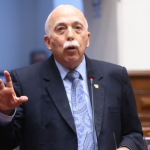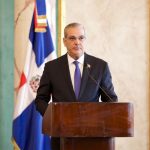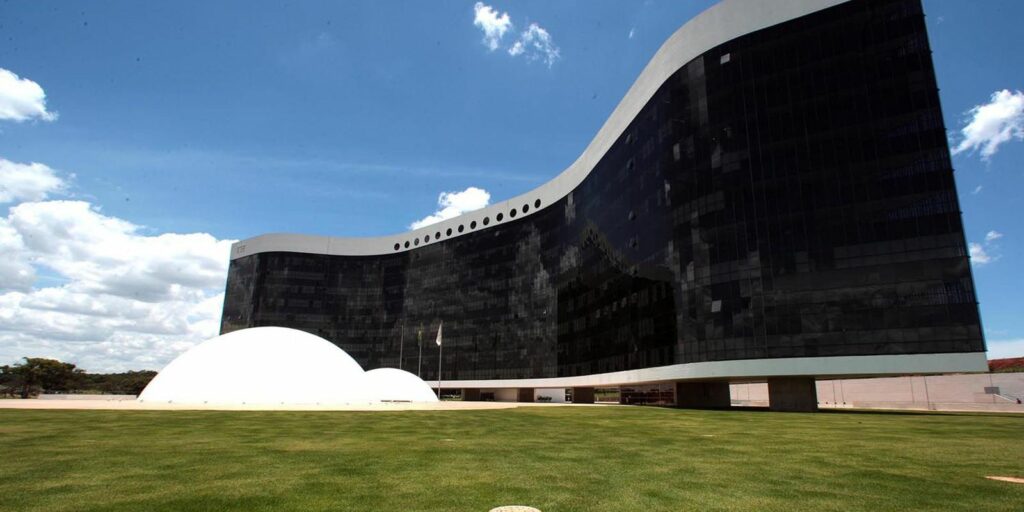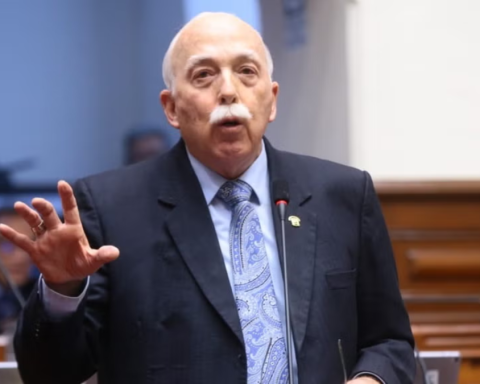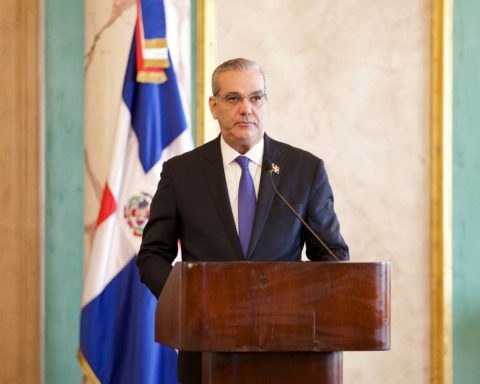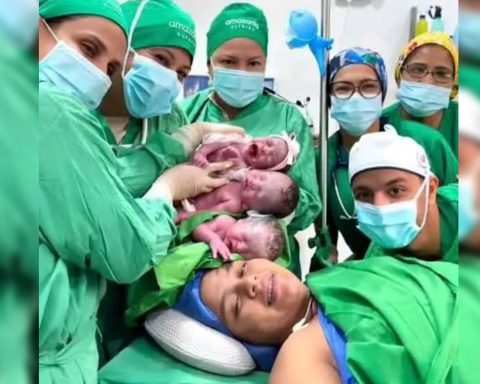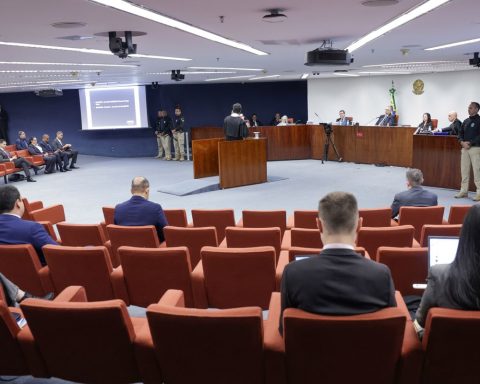This Thursday, the administrative transfer of two of the axes of the Good Living Plan -designed to find a way out of the conflict between the State and the Mapuche people- that were located in the Ministry of the Interior, headed by Carolina Tohá (PPD), to the Ministry of the Interior, was reported. General Secretariat of the Presidency (Segpres), portfolio commanded by Ana Lya Uriarte (PS). This transfer, they explain inside La Moneda, occurred largely due to the recommendation of the United Nations to separate into two different ministries what are the security points, from those that refer to dialogues with the communities. The UN, they say in the Palace, has fulfilled a role of interlocutor between the Government and the indigenous communities.
The change occurs within hours of Minister Carolina Tohá visiting – this Friday and for the first time – La Araucanía, as a representative of the Interior portfolio. Regarding the mission of the head of the Segpres, it is marked by an agenda focused on dialogue with the different actors in the region, to prepare the first trip of President Gabriel Boric to the area. It also comes after Social Development Minister Giorgio Jackson visited the region last Friday.
It is an initiative that announced on May 17 the past head of the Interior, Izkia Siches, and that –according to what was reported that day– consists of four essential axes: land restitution; Ministry of Indigenous Affairs; parliaments that recognize the indigenous authorities and the actors of the territory; investment in improving the quality of life of the communities and inhabitants of the regions of La Araucanía and Biobío, as well as the provinces of Arauco and Biobío; and, finally, a section that referred to security in these areas. Initially, the first two points were put in charge of the Ministry of Social Development, and the rest, of the Interior portfolio.
The project that was until this Thursday in the Interior – which refers to the creation of territorial parliaments and investment – will continue to be led by Víctor Ramos, a psychologist, a Master’s in Public Policy and a member of Gabriel Boric’s party, Social Convergence. Palace sources affirm that with the departure of Siches the program was not threatened, as it is a “team constituted by the President, who has a special mandate over him”, since it is “part of the Government’s design”.
According to information provided by the Ministry of the Interior to The counterto achieve the main two objectives, 152 meetings have been held, developed in 35 communes of the 4 regions covered by the Good Living Plan.
According to the official response from Segpres, “the plan will continue its progress in permanent coordination with the Ministry of the Interior and Public Security –that maintains its role in the security strategy, support for victims and from the agenda of the Undersecretary of Regional Development–and with the Ministry of Social Development and Family, which is in charge of accelerating the investment and land restitution plan through the Conadi”.
They detailed that the initiative “seeks to activate investment, accelerate and make public spending more efficient, particularly in the social and infrastructure areas to close the existing gaps in the area of La Araucanía” and that “will be formally included in the 2023 National Budget”, which will be entered by the President this Friday.
In addition, they explained that the administrative transfer of the Plan Buen Vivir to the security “seeks to house this plan in a ministry more relevant to its mandate and mission.”
One of the titles within chapter 2 of the program presented by the current President in the second round was “Original peoples and Afro-descendant tribal people”, where it was stated that they intended, as a State, “to conduct actions aimed at recognizing and promoting the rights that emanate from plurinationality, such as the creation and strengthening of public institutions, also recognizing the right that they have, within the constitutional framework, to elect their authorities and resolve their own affairs, promoting good living”.
A recommendation from the United Nations: the reason behind the change of ministry
Sources inside the Palace assure that the idea of changing the axes that depended on the Ministry of the Interior to that of the Segpres -with the exception of those related to security for La Araucanía and Biobío-, arose from a recommendation of the United Nations (UN), body that has functioned as an interlocutor between the Government and some communities. And this determination, they say, had been incubating since the Siches administration.
The UN would have suggested that it was reasonable for the security axes to be located in the Interior and that the points that referred to the talks with the communities and local authorities would be in charge of another ministry. This, so that it would not be the same portfolio that, on the one hand, reached agreements and that had to, on the other, make difficult decisions regarding security, such as the extensions of the States of Exception in the area -the last, eighth already, it was approved in Congress on September 27–.
They explain that the decision was made to file it with Segpres because it is a portfolio that understands dialogue processes and, in this way, allows the Interior to concentrate on security issues. Meanwhile, land restitution will continue to be the responsibility of the Ministry of Social Development.
Inside La Moneda they endorsed that the three ministries – Interior, Segpres and Social Development – will continue to be articulated around the Good Living Plan, but the issues that are security, territorial demands and development will be shared. The idea, they emphasize, is that this initiative gain strength and be “a plan that transcends governments”, becoming a State policy that can continue in future governments with a similar logic.
According to official information provided by Interior to The counterthis Secretary of State will be in charge of “the strategy of security, decentralization and support for local governments, where the figures of the Presidential Delegations, Governments and mayors emerge, institutions that facilitate the execution of said strategies”.
Meetings with indigenous communities
According to information from the Ministry of the Interior, the project has had the participation of the United Nations with an “observer” role, which “is developed together with other relevant actors such as foundations and universities.”
They reported that since its implementation was reported in May 2022, 152 meetings have been held in 35 districts of the 4 regions covered by the Good Living Plan, as noted above. And, according to the same data, within the Biobío Region there are 58 communities impacted by the project in six communes; in La Araucanía, 403 communities in 25 districts; in Los Ríos, meanwhile, 22 communities in six districts; and in Los Lagos, 10 communities in 8 communes.
The day the Good Living Plan was launched to the press, within the axis of land restitution, based in the Ministry of Social Development -today headed by Minister Jackson-, it was reported that “the budget of the National Corporation of Indigenous Development (Conadi) for the purchase of properties and the mechanisms are improved to make land restitution more agile, a fundamental demand of the native peoples”.
On September 22, the national director of Conadi, Luis Penchuleo Morales, pointed out that the entity will execute the entire budget allocated for the purchase of land from Mapuche communities via article 20, letter B. This, due to the fact that in August the Government increased the budget for the purchase of land, reaching $35 billion, according to Conadi calculations.
A day later (September 23), Minister Jackson arrived in La Araucanía and led his first delivery of land –340 hectares– to the Mapuche Juante Nahuelpan community of Tirúa, together with the national director of Conadi.
Added to the above are meetings held by the Secretary of State with the regional governor, Luciano Rivas; with presidential delegate Raúl Allard; with the SEREMI of Social Development and Family in La Araucanía, Mariela Huillipán, and with the SEREMI of the different government ministries; likewise, with mayors of the 11 districts of Malleco.
“Public spending, which will reach $35 billion, is administratively committed (…), which will benefit about 15 Mapuche communities in the Biobío, La Araucanía and Los Ríos regions,” they assured from the Interior.
And they clarified the criteria: “All purchases for this year 2022 were made in accordance with the Budget Law, considering as criteria the age of the demand, that the properties were not disturbed or in situations of violence and that the communities close their territorial demands when receiving land”.
This is added to the fact that the former head of the Ministry of Social Development, Jeanette Vega (PPD) – who left her position due to the PDI record that reported the call made by one of her advisers to the CAM leader, Héctor Llaitul –, he maintained, in an interview on Sunday with Third, that in his time in charge of the aforementioned portfolio they managed to “delimit the amount of land that the forestry companies were available to sell, which was a significant number of hectares.”







